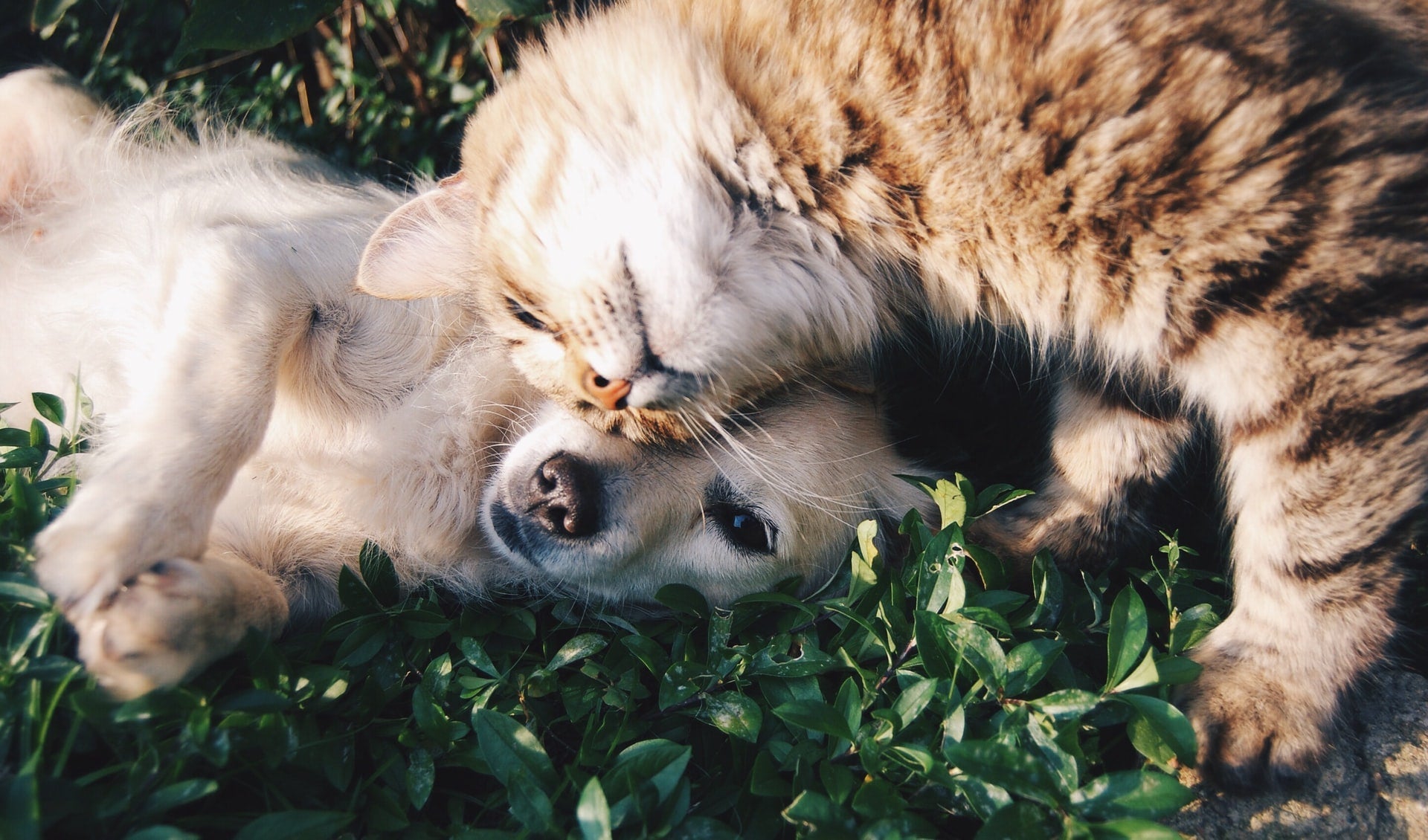No cat-friendly home is complete without its share of catnip. If you’ve got multiple pets in your home, your dog may try to get in on your kitty’s catnip from time to time, leading you to wonder: is catnip safe for dogs?
As it turns out, catnip isn’t just safe for dogs—it’s also beneficial to their health! Even if you’re a dog-only household, you may find that it’s worth investing in some catnip for your canine friend.
What Is Catnip?
Catnip is a fragrant herb in the mint family. It contains a chemical called nepetalactone, which is found in the stems, leaves, and seed pods of the plant.
Nepetalactone is the active ingredient that causes that well-known emotional response in cats—that “high” ranging from a mellow buzz to energetic excitement.
Catnip is available in several forms: dried or fresh; in the form of a spray, gel, or oil; you can even grow your own catnip plant at home.
How Do Dogs React to Catnip?
Despite its name, catnip isn’t exclusively for cats. While catnip typically acts as a stimulant in cats, it has the opposite effect in dogs, by acting as a mild sedative.
Keep in mind that as with cats, not all dogs react to catnip in the same way. In fact, some have no response at all.
Additionally, catnip should not be used as a daily supplement for dogs. Instead, save it for occasional restlessness or upset stomach. That said, while catnip isn’t toxic to dogs, too much at once could lead to more tummy troubles, countering the ones you’re trying to relieve!

Benefits of Catnip for Dogs
Filled with minerals such as magnesium, vitamins C and E, tannins, flavonoids, and essential oils, catnip offers a variety of health benefits to dogs.
For example:
Better Sleep
Because catnip acts as a mild sedative, giving catnip to your dog about half an hour before bedtime can help him to calm down and sleep better. It can also help with regulating his sleep if he’s having trouble staying on a consistent schedule.
Anxiety Relief
Those calming, sedating effects of catnip don’t just help your dog sleep—they can also help to calm him down during stressful situations such as car rides, vet visits, fireworks, thunderstorms, and more.
Stomach Soothing
Similar to how a mint tea can be soothing for our bellies when we’re feeling nauseous, catnip can help to tame your pup’s tummy when he’s got an upset stomach. If your dog tends to experience motion sickness in the car, try giving him some catnip 30 minutes before your trip.
Help with Healing
Due to its antibacterial and healing properties, catnip can also act as a natural antiseptic. Gently rub some fresh catnip onto your pet’s minor scrape or cut… but don’t use this as a replacement for calling the vet in the event of an emergency.
Natural Pest Repellant
You and your pup will both love the fact that catnip acts as a natural flea and mosquito repellant! Plant some catnip plants in your yard, use catnip oil or spray topically, or rub fresh or dried catnip into your pup’s bedding to keep fleas and mosquitos at bay.
It’s important that you make sure any commercial catnip products you use are dog-friendly and non-toxic. To be safe, always consult with your vet to ensure your pooch doesn’t have any allergies to the ingredients.
How to Give Your Dog Catnip
As mentioned above, catnip is available in a few different forms: dried, fresh, or in the form of a spray, gel, or oil.
Ways to give your dog catnip include:
- Sprinkle some dried catnip onto his food
-
Place some fresh catnip leaves into his drinking water
- Apply fresh catnip to a mild cut or scrape
- Spray his bedding or play area (especially if you’re using it as a natural pest repellant)
While there’s no fixed amount that you should give to your dog, remember that too much catnip can lead to an upset stomach. For that reason, we recommend no more than half a teaspoon of dried catnip or a few leaves at a time.
If you’re using catnip as a stress reliever or sleep aid for your dog, give it to him about 30 minutes before the event in question (car ride, fireworks, bedtime, etc.).
Keep an eye on how your dog responds to catnip, especially the first time you give it to him. While some pets are heavily affected, others may not feel any effects at all. If you notice any adverse reactions, contact your vet immediately.
Finally, please note that catnip should not be used as a replacement for vet-recommended medications or supplements. Use it as an occasional aid, rather than a daily supplement.
PetHonesty’s Hemp Calming Chews
If your dog is prone to anxiety or motion sickness, try PetHonesty’s Premium Hemp Calming Chews. They may not contain catnip, but they do offer comparable health benefits.
These gentle, non-sedating soft chews use a blend of all-natural ingredients to calm and soothe your dog’s mind and tummy to make car rides, vet visits, thunderstorms, and separation less upsetting.
Sources:
https://blog.healthypawspetinsurance.com/is-catnip-safe-for-dogs
https://www.rover.com/blog/is-catnip-safe-for-dogs/
https://dogtime.com/dog-health/dog-food-dog-nutrition/91421-can-dogs-eat-catnip-safe
https://www.animalcareclinicjc.com/news/2021/2/2/catnip-is-it-safe-for-dogs













